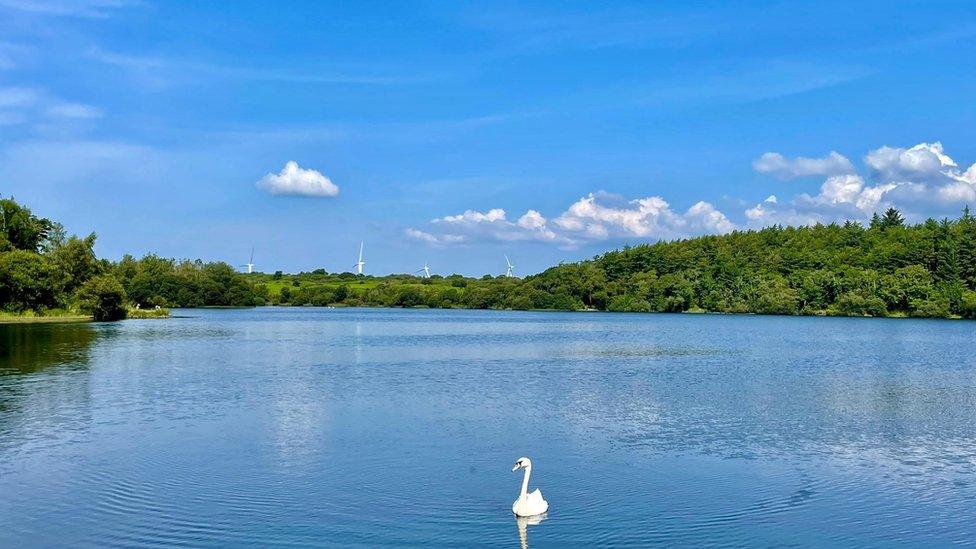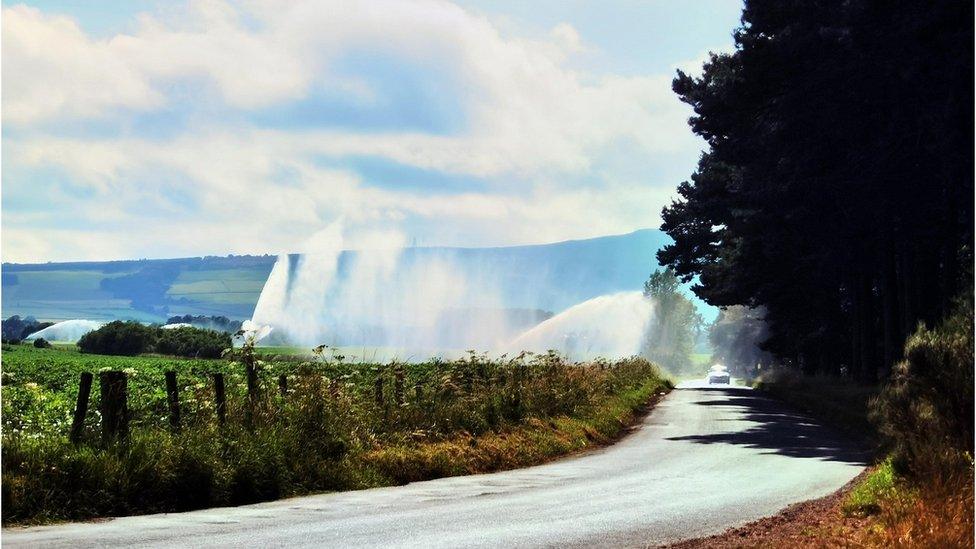Hottest day of the year so far in Scotland
- Published

Temperatures have soared across the country with a hot spot in the south west - including Glenluce
The hottest day of the year has been recorded in Scotland, peaking in Dumfries and Galloway.
Temperatures have soared across the country, including a 29.3C hot spot at Threave, near Castle Douglas.
Elsewhere, haar (or sea fog) was spotted earlier in eastern and central areas, caused by warm air passing over the cold North Sea.
Amber warnings have been issued for extreme heat in Northern Ireland, Wales and the south east of England.

Threave House and Gardens in Dumfries and Galloway, where the highest temperature was recorded

A BBC Weather Watcher captured haar at Livingston in West Lothian
The Met Office warning comes with an appeal to watch out for heat exhaustion and sunburn.
The hot weather is expected to last until the weekend.
The second highest temperature was 28.4C recorded at Dunstaffnage, near Connel Bridge in Argyll and Bute, while 28C was recorded at Auchincruive in Ayrshire.
Temperatures hit 26C in Glasgow but were cooler in the east, rising to only 19.5C at Gogarbank near Edinburgh.
BBC Weather said the heat was triggering a few thunderstorms in Dumfries and Galloway with grey, murky skies in some eastern coastal areas and the Northern Isles.
Forecaster Kirsteen MacDonald said: "High pressure across the UK did not really move all week.
"We also have had a cumulative effect, where each day of strong sunshine warms the air further, on top of the warming by descent.
"This is what has caused the hot weather in parts of the UK over the last few days. Temperatures will peak again tomorrow around 28C, possibly 29C.
"This weekend, high pressure will remain in charge across Scotland. Plenty of warm sunshine in the forecast, but temperatures will be down by quite a few degrees. Eastern coasts will continue to be plagued by haar."

Fields are drenched at Ladybank in Fife
The Met Office launched its new extreme heat warning, external system at the start of June to highlight potential widespread disruption and adverse health effects. Amber is the second-highest level in the system.
Heatwaves are becoming more likely and more extreme because of human-induced climate change.
The world has already warmed by about 1.2C since the industrial era began, and temperatures are predicted to keep rising unless governments around the world make steep cuts to greenhouse emissions.
Allow X content?
This article contains content provided by X. We ask for your permission before anything is loaded, as they may be using cookies and other technologies. You may want to read X’s cookie policy, external and privacy policy, external before accepting. To view this content choose ‘accept and continue’.